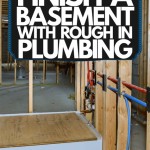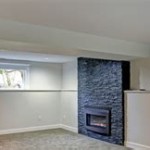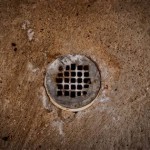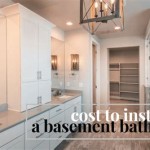Best Non-Carpet Flooring for Basements
Basements, often underutilized spaces, hold the potential to be transformed into functional and comfortable areas. However, choosing the right flooring is crucial for a successful basement renovation. Carpet, while plush and cozy, is not always the ideal choice due to its susceptibility to moisture, mold, and mildew. The ideal basement flooring should be durable, moisture-resistant, and aesthetically pleasing. This article explores the best non-carpet options for basement flooring, offering a comprehensive and practical guide to make informed decisions.
Engineered Hardwood Flooring
Engineered hardwood flooring offers the beauty and durability of traditional hardwood while being more moisture-resistant. It consists of multiple layers, with a real wood veneer on top, making it a suitable choice for basement environments. Engineered hardwood is engineered for stability, less prone to warping and expansion, and easier to install than solid hardwood. It can be refinished multiple times, extending its lifespan and preserving its aesthetic appeal.
Luxury Vinyl Tile (LVP) and Luxury Vinyl Plank (LVP)
LVP and LVP are popular choices for basement flooring due to their versatility, durability, and moisture resistance. Composed of multiple layers, with a wear layer on top mimicking the look of natural materials like wood, stone, or tile, LVP and LVP offer a wide range of styles and designs. They are waterproof, easy to maintain, and highly scratch-resistant, making them ideal for high-traffic areas. LVP and LVP are also relatively affordable compared to other flooring options, making them a budget-friendly choice.
Epoxy Flooring
Epoxy flooring is a durable and seamless option that is highly resistant to moisture and stains. It is applied as a liquid coating that cures into a hard, non-porous surface. Epoxy flooring is known for its durability and ease of cleaning, making it suitable for workshops, garages, and even living spaces. It comes in various colors and patterns, allowing for customization to match any aesthetic preference. However, epoxy floors can be slippery when wet, so consider adding a non-slip additive.
Porcelain Tile
Porcelain tile is a classic and elegant flooring option that is highly durable and resistant to moisture, scratches, and stains. It is available in various sizes, colors, and patterns, allowing for creative design possibilities. Porcelain tile is easy to clean and maintain, requiring only sweeping and occasional mopping. It is a relatively expensive option, but its durability and longevity make it a worthwhile investment for any basement project.
Concrete Flooring
Concrete flooring is a cost-effective and durable option for basements. It is naturally resistant to moisture and can be stained or painted to enhance its aesthetic appeal. Concrete flooring can be polished to create a sleek and modern finish or left in its natural state for a rustic look. It is a versatile option that can be adapted to various styles and needs, making it a practical choice for basement spaces.
Factors to Consider When Choosing Basement Flooring
When selecting flooring for a basement, several factors should be considered:
Budget
Flooring options range in price, so establishing a budget is crucial for narrowing down choices. LVP and LVP tend to be more affordable than engineered hardwood or porcelain tile.
Style
Consider the overall aesthetic of the basement and choose flooring that complements it. Engineered hardwood offers a classic and elegant look, while LVP and LVP mimic the appearance of natural materials. Porcelain tile can add a touch of sophistication, and concrete flooring can create a contemporary or industrial feel.
Traffic
Anticipate the level of traffic in the basement. High-traffic areas require durable flooring options like porcelain tile or LVP/LVP. For less-trafficked areas, engineered hardwood or concrete flooring might be suitable.
Moisture
Basements are prone to moisture, so it is essential to select flooring that is moisture-resistant. Engineered hardwood, LVP/LVP, epoxy, porcelain tile, and concrete are all good options for this purpose.
Maintenance
Consider the level of maintenance you're willing to commit to. Some flooring options require more care than others. Porcelain tile and LVP/LVP are generally low-maintenance options, while engineered hardwood and concrete may require occasional refinishing or sealing.
By carefully considering these factors, homeowners can choose the best non-carpet flooring option for their basement, transforming it into a comfortable, functional, and stylish space.

Don T Buy New Flooring Before You Check This Out

5 Best Flooring Options For Basements Floors2day

The Best Flooring Options For Your Basement

Inexpensive Basement Flooring Options Rubberflooring4u

What Are The Best Flooring For Basement In Homes

6 Inspiring Ideas For Basement Flooring In Portland

The Best Flooring Options For Your Basement From Forest Llc

The Best Flooring Options For Your Basement

6 Of The Best Flooring Options For Basements Colorado

How To Choose The Right Floor For Your Basement Gc Flooring Pros
Related Posts







